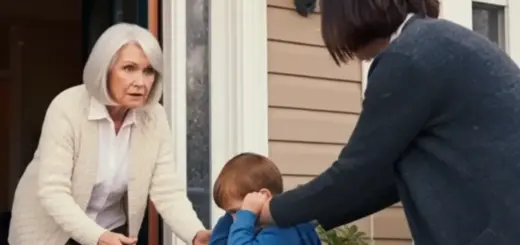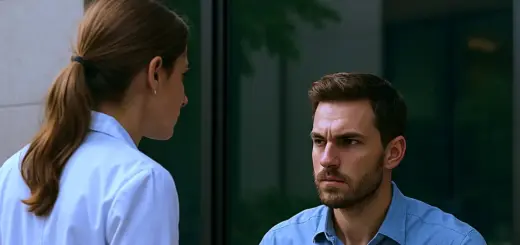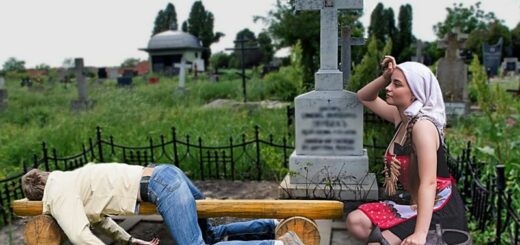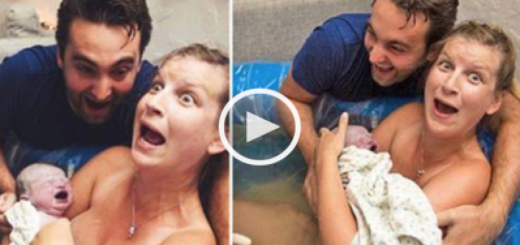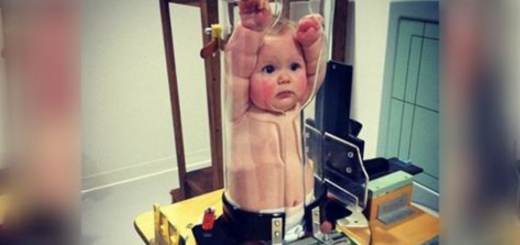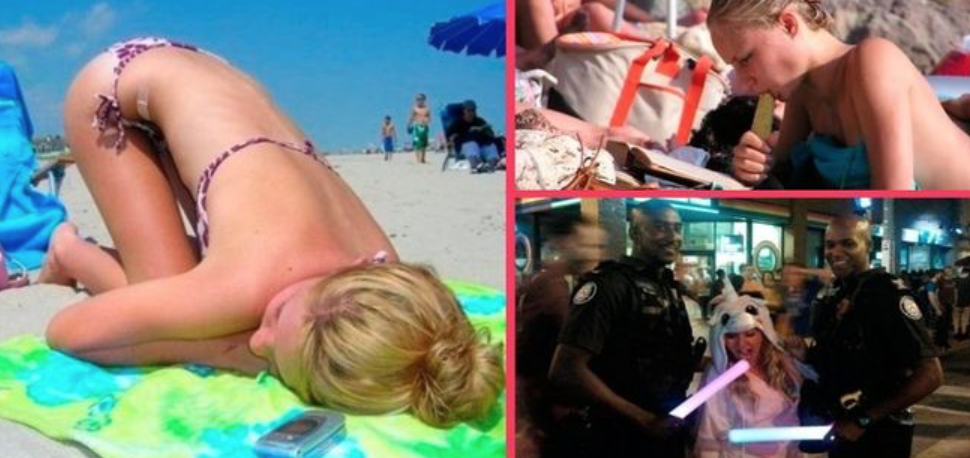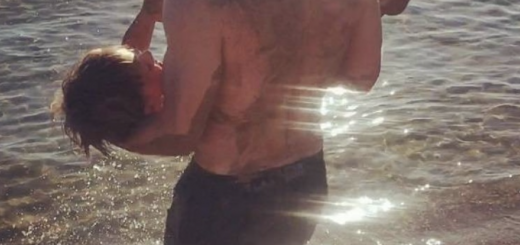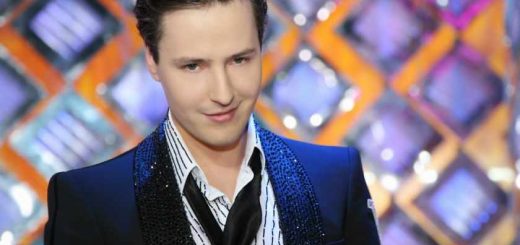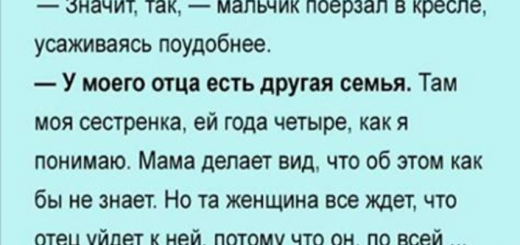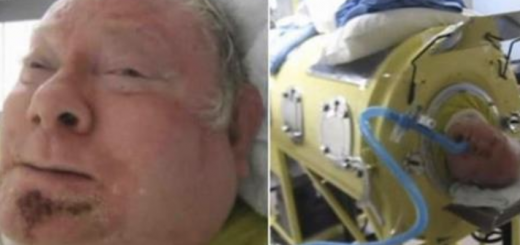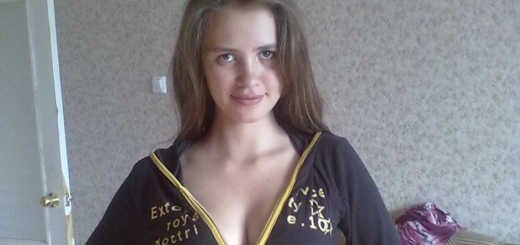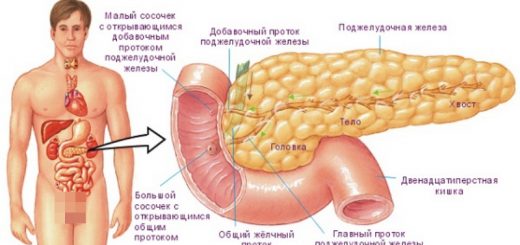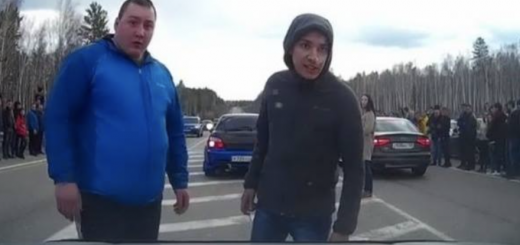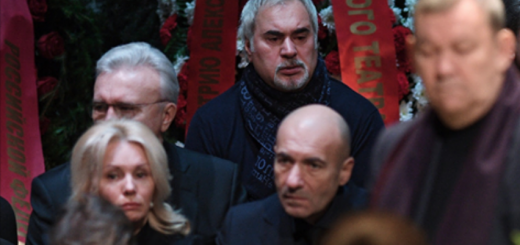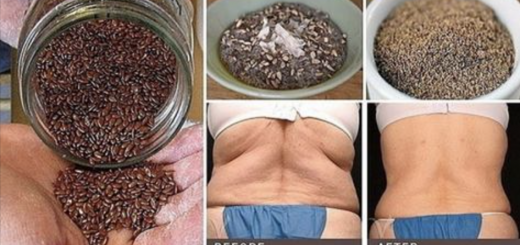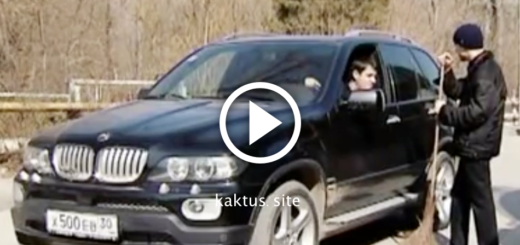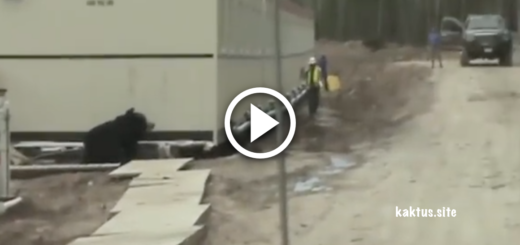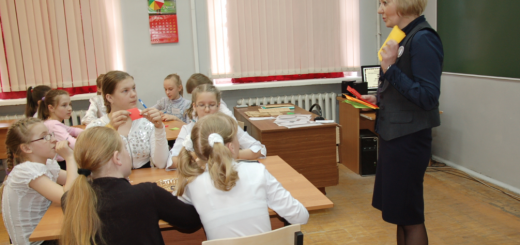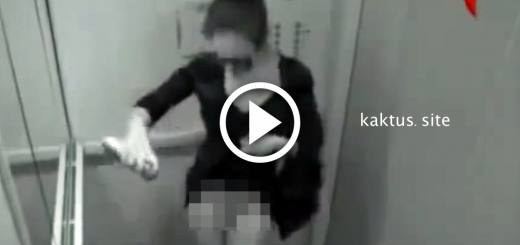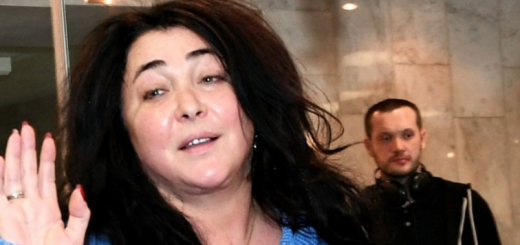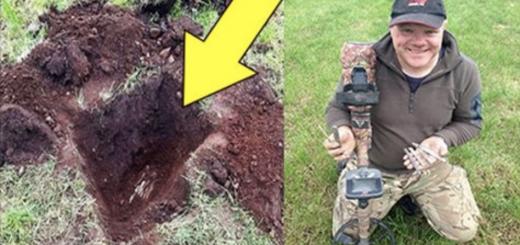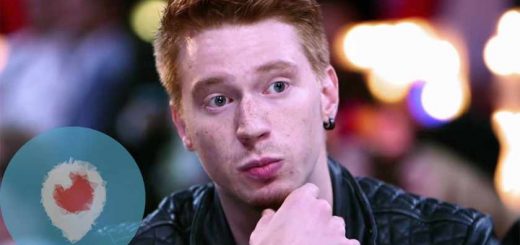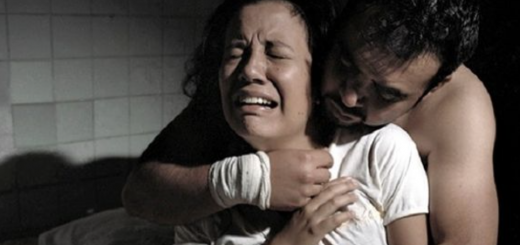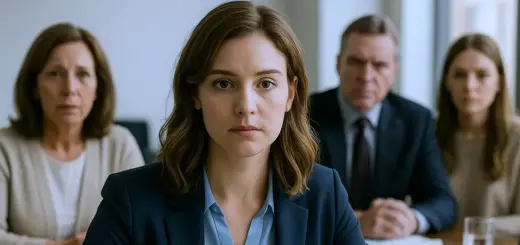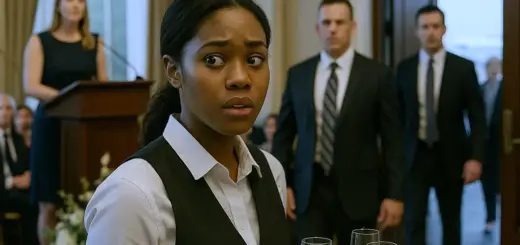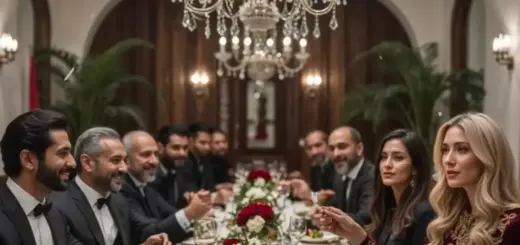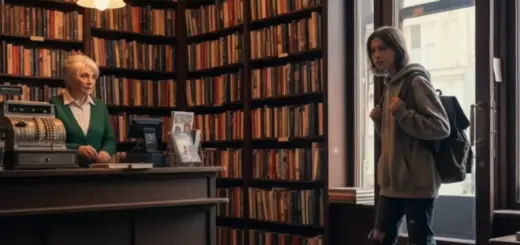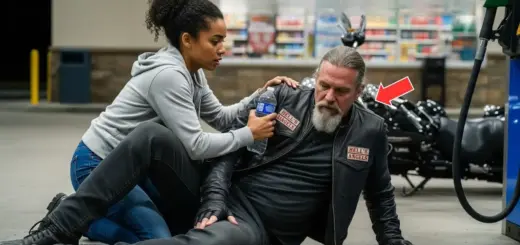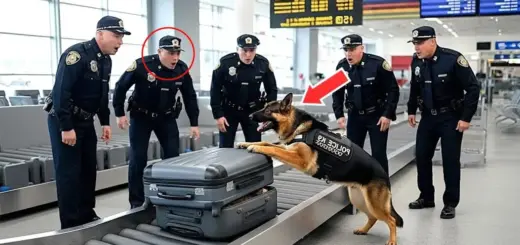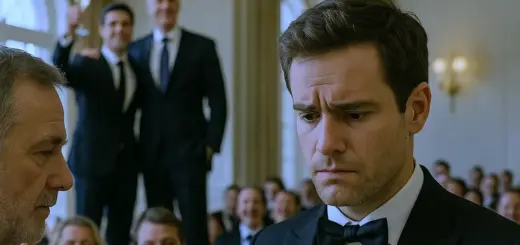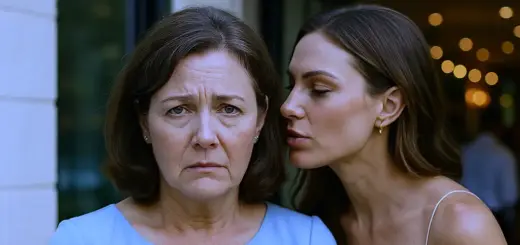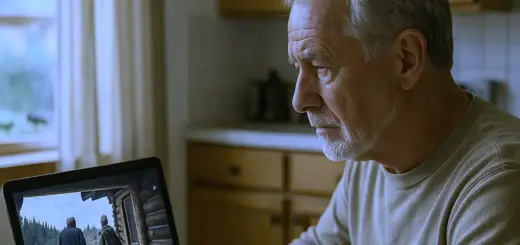But what really broke me wasn’t Catherine’s cruelty. It was the realization that I still cared what they thought. After everything they’d done, after all the evidence of their true feelings, I was still that seven-year-old girl trying to earn her place in a family that would never accept her.
That was when I decided to disappear completely. I finished out my lease and moved to a different city, using my birth mother’s money to start over somewhere the Morrison name meant nothing. I changed my phone number and deleted all my social media accounts.
I wanted to build a life where no one knew about my connection to that family, where I could be just Corlett, not the Morrison family’s former foster child. I had no way of knowing that my disappearance would set other events in motion, that somewhere across the country, Daniel Chun was building a technology empire and trying to find the girl who had vanished from his life without explanation, that he’d been searching for me for three years, following dead ends and false leads, never understanding why I’d pushed him away so suddenly. I had no idea that my decision to hide from the Morrison family had made me invisible to the one person who might have changed everything.
But disappearing turned out to be the best decision I could have made, because when Daniel finally found me again, when our paths crossed in the most unexpected way possible, I was no longer the broken girl who’d been thrown out of her adoptive family’s house. I was someone who had learned to survive on her own terms, someone who had discovered her own worth without needing anyone else’s validation. I was ready for the revenge I never knew was coming.
I spent two years learning how to be invisible. The city I chose was Portland, far enough from Morrison family’s social circle that I could start completely fresh. I rented a small studio apartment in a neighborhood where nobody asked questions about your past, and I took a job at a non-profit legal aid clinic, helping low-income families navigate adoption and custody issues.
The irony wasn’t lost on me. Here I was, helping other people fight for their right to family, while I was running from the only family I’d ever known. But the work felt meaningful in a way that nothing else had since Margaret died.
These families were fighting for something real, something that mattered more than reputation or social standing. My supervisor, Janet, was a woman in her 50s who’d been working in family law for 30 years. She had the kind of sharp intelligence that reminded me of Margaret, but without the soft edges that had made Margaret vulnerable to Robert’s manipulation.
You’re good at this, Janet told me after I’d been there six months. You understand what these families are going through in a way that most advocates don’t. Have you considered going back to school for your law degree? I had considered it, almost daily.
But every time I started researching programs or filling out applications, I found myself paralyzed by memories of my old plans. The life I’d imagined with Daniel. The future I’d mapped out when I still believed I had a real family to make proud.
Maybe someday, I always answered, and Janet would nod like she understood that someday was code for when I figured out how to want things for myself again. The truth was, I was stuck. Not financially, thanks to my birth mother’s inheritance, but emotionally.
I’d built my entire identity around trying to earn love from people who were never going to give it to me. And now that I’d stopped trying, I didn’t know who I was supposed to be. I went to work, came home, read books, and watched Netflix.
I had polite conversations with my neighbors and friendly interactions with my co-workers. But I didn’t let anyone get close enough to hurt me. I was safe, but I was also completely alone.
That might have been my life forever if Janet hadn’t gotten sick. It started with headaches and fatigue that she blamed on stress, and too much coffee. But by the time the doctors figured out it was a brain tumor, Janet was already struggling to remember case details and client names.
She needed surgery immediately, followed by months of treatment that would keep her out of the office indefinitely. I need someone to cover the Morrison Foundation event, she told me during her last week at work, handing me a thick folder of documents. It’s one of our biggest fundraising opportunities of the year.
Usually I handle it personally, but under the circumstances, I felt the blood drain from my face. The Morrison Foundation, you know them? Good, that’ll make things easier. Janet flipped through the papers, missing my expression entirely.
They’re hosting their annual charity banquet next month, and they’ve committed to a substantial donation to support our adoption advocacy program. Someone needs to be there to accept the check and give a short presentation about our work. My hands were shaking as I took the folder.
Maybe someone else should handle this. I’m not really comfortable with public speaking. Corlette, you’re the best advocate we have.
These donors need to see what their money is actually accomplishing, and you can speak about our work with more passion and knowledge than anyone else here. Janet’s expression softened. I know it’s intimidating, but this is exactly the kind of experience you need if you’re ever going to apply to law school.
I wanted to tell her the truth. That the Morrison Foundation was run by the family that had thrown me out like garbage. That showing up at their charity banquet would be walking straight back into the nightmare I’d spent two years trying to escape.
But Janet was sick, and the clinic needed this donation. Our adoption advocacy program helped dozens of families every year. Families like the one I’d never really had.
I couldn’t let my personal issues interfere with work that mattered more than my own comfort. Of course, I heard myself saying, I’ll handle it. That night, I researched the Morrison Foundation online, trying to prepare myself for what I was walking into.
What I found was worse than I’d expected. The foundation had become Robert’s Pet Project after Margaret’s death, a way to burnish the family reputation while taking advantage of favorable tax laws. Rebecca was listed as the director of community outreach, and Catherine served as the volunteer coordinator.
Their website was full of photos from previous charity events, showing the Morrison family posing with local politicians and business leaders. But what really twisted the knife was their mission statement, dedicated to supporting vulnerable children and strengthening family bonds in our community. They’d turned their treatment of me into a marketing opportunity, positioning themselves as champions of exactly the kind of children they’d discarded.
The more I read, the angrier I got. They were using Margaret’s memory to fund their social climbing, while simultaneously erasing any evidence that they’d ever failed a vulnerable child themselves. My adoption was nowhere mentioned in their family history or charitable motivations.
As far as the public knew, Robert and Margaret Morrison had raised two successful daughters, and built a foundation dedicated to helping other families achieve the same happiness they’d created in their own home. It was a lie so complete and shameless that it took my breath away. But I also realized something else as I scrolled through years of foundation materials.
This wasn’t just about tax benefits or social status. This was about control. By positioning themselves as experts on family welfare and child advocacy, the Morrison family had insulated themselves from any criticism about their treatment of me.
Who would believe that a family so dedicated to helping vulnerable children had emotionally abused, and then abandoned their own adopted daughter? Who would question the donated hundreds of thousands of dollars to support adoption services? They’d built themselves a perfect shield, and they were hiding behind it while accepting praise for the very values they’d never actually practiced. The charity banquet was being held at the Morrison house, which had been renovated and expanded since Margaret’s death. According to the foundation’s website, they’d added a ballroom specifically for hosting fundraising events, along with a private airstrip for donors who preferred to arrive by private jet.
I stared at the photos of the house where I’d grown up, now transformed into a showplace for Robert’s charitable empire. My childhood bedroom was probably part of Rebecca’s home office now. The kitchen where Margaret had helped me with homework was probably being used by caterers preparing for events where the Morrison family accepted awards for their generosity.
Everything that had once been mine, even the memories had been repurposed to serve their narrative. But as I sat there looking at pictures of my former home, I realized something that surprised me. I wasn’t devastated anymore.
I was furious. For two years, I’d been hiding from these people like I was the one who’d done something wrong. I’d been ashamed of my own story, embarrassed by the fact that I’d been discarded by the only family I’d ever known.
But Margaret’s letter had changed that. I wasn’t a charity case or a burden or a foster child who’d overstayed her welcome. I was the daughter of Margaret’s best friend, someone who’d had every right to love and protection and belonging.
My birth mother had left me resources specifically, so I would never have to depend on anyone else’s kindness. The Morrison family hadn’t done me a favor by taking me in. They’d made a commitment to my birth mother and to Margaret, and they’d broken that commitment the moment it became inconvenient.
I’d been hiding from people who should have been ashamed to show their faces in public. That realization gave me something I hadn’t felt in years, power. I was going to their charity banquet, but not as the grateful former foster child begging for acceptance.
I was going as someone who knew exactly who they really were behind their carefully constructed public image, someone who could smile and shake hands and give a professional presentation while knowing that their entire foundation was built on a lie. I wasn’t planning revenge. I was planning to survive with my dignity intact, to do my job professionally, and then walk away from the Morrison family forever.
I had no idea that someone else was planning something much more dramatic. I had no idea that Daniel Chin had been searching for me for three years, following every lead and hiring private investigators to track down the girl who’d disappeared from his life without explanation. I didn’t know that he’d inherited his father’s technology empire six months earlier, making him one of the youngest billionaires in America.
I definitely didn’t know that he discovered the truth about Rebecca’s interference in our relationship, or that he’d been quietly investigating the Morrison family ever since. And I had absolutely no idea that he’d been invited to their charity banquet as a potential major donor, or that he’d accepted the invitation specifically because he hoped I might be there. The week before the event, I bought a simple black dress and practiced my presentation in the mirror.
I researched the other donors who would be attending, memorized statistics about our adoption advocacy program, and prepared answers for every possible question about our work. I thought I was ready for anything. I thought I could handle seeing Robert and Rebecca and Catherine again, could smile politely while they pretended we’d never met, could deliver my presentation and collect our donation without letting them see how much they’d hurt me.
I thought I was strong enough to walk back into that house and leave with my dignity intact. I was wrong about almost everything, but I was right about one thing. When I walked into that charity banquet, I wasn’t the same girl they’d thrown out two years earlier.
I was someone who’d learned to stand on her own, someone who discovered her worth without needing their validation. I was ready for a confrontation I never saw coming. What I couldn’t have predicted was that the confrontation wouldn’t be between me and the Morrison family.
It would be between the people who’d thrown me away and the man who’d never stopped looking for me, the man who’d spent three years building an empire while planning the perfect moment to show them exactly what they’d lost when they decided I wasn’t worth their love. The private jet was already circling the airstrip when I arrived at the Morrison house that night. I could see it from the parking area, sleek and expensive against the evening sky.
I assumed it was just another wealthy donor making a dramatic entrance. I had no idea I was looking at my future. The Morrison house looked like something out of a magazine when I arrived that evening.
Every window glowed with warm light, and valets in white jackets were directing luxury cars around the circular driveway. The ballroom addition jetted out from the back of the house like a crystal palace, all glass walls and soaring ceilings that made the original structure look quaint by comparison. I parked Margaret’s old Honda between a Mercedes and a BMW, feeling like I was driving a toy car to a grown-up party.
But I straightened my shoulders and walked toward the service entrance, carrying my presentation materials and trying to project the confidence Janet had always said I possessed. The catering manager, a harried woman named Linda, barely glanced at me when I introduced myself as the representative from the legal aid clinic. Thank God you’re here, she said, thrusting a server’s uniform at me.
Two of our girls called in sick, and Mrs. Morrison is very particular about having enough staff for the cocktail hour. I stared at the black dress and white apron in my hands. I think there’s been a misunderstanding.
I’m here to accept a donation, and give a presentation about our adoption advocacy program. Linda looked at me like I’d sprouted a second head. Honey, I don’t know anything about a presentation.
What I know is that we’re short-staffed, and the guests start arriving in 20 minutes. Mrs. Morrison specifically requested that someone from your organization help with service tonight as part of the partnership. My stomach dropped.
Which Mrs. Morrison? Rebecca Morrison, the foundation director. She said your clinic was sending someone who understood the importance of hands-on community service. Linda’s expression softened slightly when she saw my face.
Look, I’m sure you can do your presentation thing later, but right now I need you to help pass appetizers. These people tip really well if you smile and don’t spill anything on them. I wanted to argue, to demand to speak to Rebecca directly, to insist that there had been some terrible mistake.
But the catering staff was already moving around me with military precision, setting up bars and arranging flowers, and preparing for an event that clearly had been planned down to the last detail, including, apparently, my humiliation. Rebecca had known I was coming. She’d known I would be representing the legal aid clinic, and she’d arranged for me to spend the evening serving drinks to the same people I was supposed to be addressing as an equal.
It was a power play so calculated and cruel that it took my breath away. But I needed this donation for the clinic. Janet was counting on me, and our adoption advocacy program was counting on this funding.
I couldn’t let my personal history with the Morrison family interfere with work that helped real children find real families. Fine, I said, taking the uniform. Where do I change? Twenty minutes later, I was walking through the ballroom carrying a tray of champagne flutes, invisible in the way that service staff always are at rich people’s parties.
The guests were exactly what I’d expected. Politicians and business leaders and old money families who treated charity events like social competitions. But seeing the Morrison family in their element was worse than I’d anticipated.
Robert was holding court near the silent auction display, regaling a group of potential donors with stories about the foundation’s impact on local families. He looked older than I remembered, his hair gone completely gray, but his voice still carried that same authoritative tone that had made me feel small and unwanted for so many years. We believe that every child deserves the stability and love that comes from a strong family unit, he was saying to a woman I recognized as the mayor’s wife.


